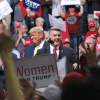Political science professor Robert Preuhs, a CU alumnus, understands the intent of the University of Colorado’s conservative Benson Center for the Study of Western Civilization, but he says the program has been poorly executed and therefore is highly problematic for a number of reasons.

The current chair of the Metropolitan State University of Denver Political Science Department, Preuhs is not just a detached outside observer of CU. He was the associate director of the Social Science Data Laboratory at CU from 2004 to 2006, and he received the Award for Excellence in Research and Creative Work by the University of Colorado Graduate School in 2001.
Asked to weigh in on the Benson Center’s controversial selection of Jan. 6 unindicted coconspirator John Eastman, who then worked for now-indicted President Donald Trump while serving as a visiting professor there, and the center’s continued exploration of controversial themes, Preuhs chooses his words carefully:
“I’m a CU alum, and that’s where I did my PhD work as well,” Preuhs told the Colorado Times Recorder in an exclusive phone interview. “In the big picture … the concept of having some ideological diversity, some heterodoxy, on campus is really not a bad thing. To have the ability to debate ideas — particularly in terms of the philosophical, theoretical discussions and what makes a good society — that’s actually useful. There’s a reasonable argument on college campuses, mine included, that they probably aren’t exposed as broadly as they could be. Part of that is self-selection from the students as much as it is from faculty.
“But, that said, CU Boulder in the Eastman case certainly didn’t select someone who is grounded in both the evidence — grounded in the notion of providing two sides to an argument — and [also selected someone who] clearly had a political agenda. Eastman was fairly well-known within Republican and conservative legal circles but not a star academic by any means, and he came from a relatively obscure law school [Chapman University]. I think, in two ways, one, just the selection itself seemed to be reaching for just anybody that would be willing to be the conservative voice, but in Eastman’s case they ended up with someone who probably looks like violated the law from my interpretation and actively sought to overturn an election, and that’s a problem for a number of reasons.”
Eastman, who is seeking an indefinite delay in his disbarment trial in California because his attorneys say it’s likely he’ll be indicted for the Jan. 6, 2021, scheme to overturn President Joe Biden’s election – a case in which Trump faces four felony counts – was fired by CU and called an “embarrassment” by the chair of CU’s Board or Regents. Eastman has denied wrongdoing.
But the beat goes on at the privately funded Benson Center, with critics continuing to call for its shutdown and its new visiting scholar — George Mason University Foundation Professor of Law Todd J. Zywicki — garnering headlines for teaching a course this fall on, among other things, the threat of ‘woke ideology” to the rule of law. In the wake of the Eastman controversy, the Benson Center continues to keep controversy swirling at CU, Preuhs says.
“I think what they hoped is that he would go away, they would fire him, and then that would be the end of it,” Preuhs said. “But the degree of his alleged malfeasance really has kind of kept that name in the spotlight and really underscored the fact that what we’re actually doing with these types of chairs or centers, and other states have adopted a similar model, was introducing … an extreme voice that really doesn’t reflect an academic discourse by any means. It really just is purely a contemporary political argument as opposed to introducing a broader, rigorous analysis and discourse into the curriculum. The other side of that is that the courses and the new Benson chair’s course description, for instance, that’s going to draw students that are already oriented towards those policies or those interpretations of society, and we’re not introducing students to different perspectives. So ultimately you undermine the entire mission of that type of center.”
Zywicki did not answer several emailed questions about Eastman, the reputation of the Benson Center, and whether it is merely reinforcing extreme ideology on the right. Asked for a definition of “woke,” Zywicki, via a CU spokeswoman, referred to a Zywicki interview with Scott Atlas on “’Wokeism’ Defined and Deconstructed’”.
Other prominent graduates of CU are more tight-lipped than Preuhs on the Benson Center and the role of Eastman in the Jan. 6 case. CU Law School graduate and former CU Regent Joe Neguse, now a Democratic U.S. House representative for the district that includes Boulder, declined to comment on Eastman or the current state of the Benson Center. He was also careful on the Trump indictments.
“I’ve refrained from commenting substantively regarding … the indictment that was issued by the grand jury — the charges that are being pursued by the special counsel — because I think it’s important for that process to play out without any kind of political interference,” Neguse said in an interview. “Ultimately, those are decisions that were made by the grand jury and the special counsel, and I think the most important thing we can do as citizens is to review the indictment and to let the Department of Justice do its job. And that’s the extent of the comments that I’ve made on it. Obviously, my experience as a [2019 Trump] impeachment manager, you’re familiar with that. My general sentiment would be these are very serious crimes that the special counsel has charged within the indictment. Every defendant is presumed innocent until proven guilty and entitled due process of law and a fair trial. And beyond that, I’m refraining from commenting.”
Former CU Law School dean and current Democratic Colorado Attorney General Phil Weiser, via a spokesman, declined to comment on Eastman and the Benson Center in particular, or the Jan. 6 indictment of Trump in general.
Preuhs is also critical of the Colorado Republic Party’s hiring of Eastman in its lawsuit seeking to prevent unaffiliated voters from participating in the state GOP’s primary elections.
“It’s anti-democratic, and it’s also just a bad move for Republicans,” Preuhs said. “They need, in a state like Colorado, to expand their support, and you can’t do that if you’re selecting candidates from an even smaller, more conservative base than the semi-open primaries that we have. And all that will do is really lead them to a greater potential to be a permanent minority in Colorado. So, if I were a consultant for the Republican Party, I would tell them to walk away from that concept. The Republicans’ … core base supporters are very strongly committed to the Trump faction and are ideological purists and in that pursuit are foregoing the prospect of expanding their appeal, and I think that’s going be a problem for them down the line.”




